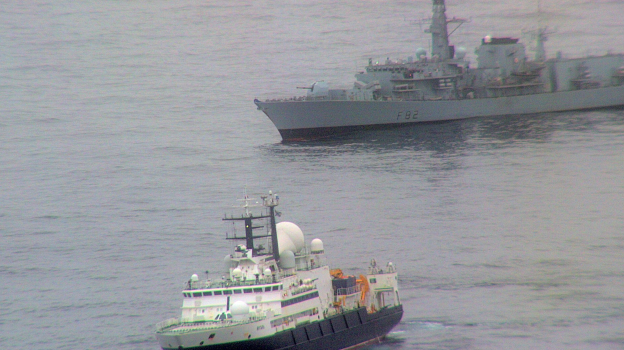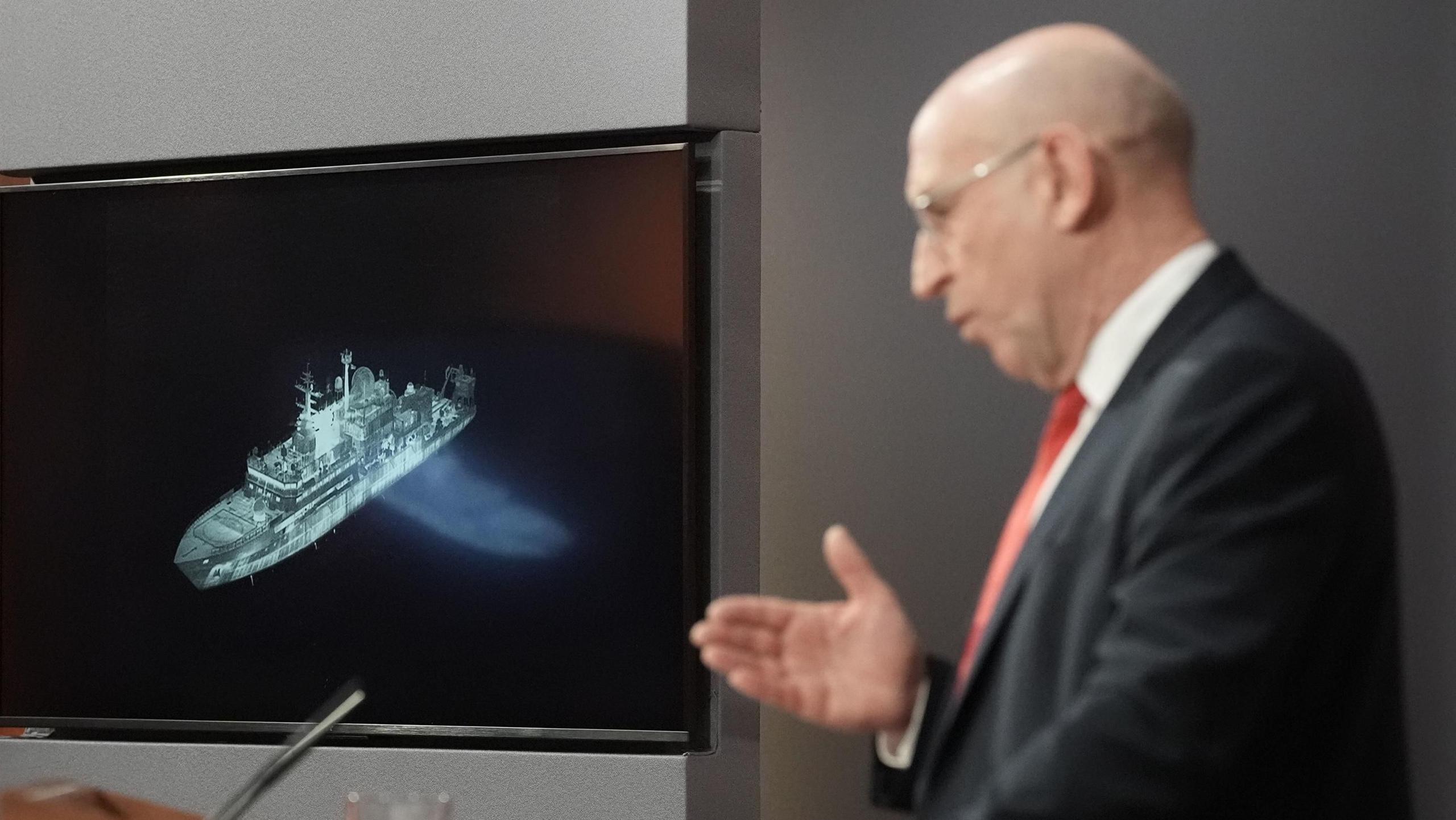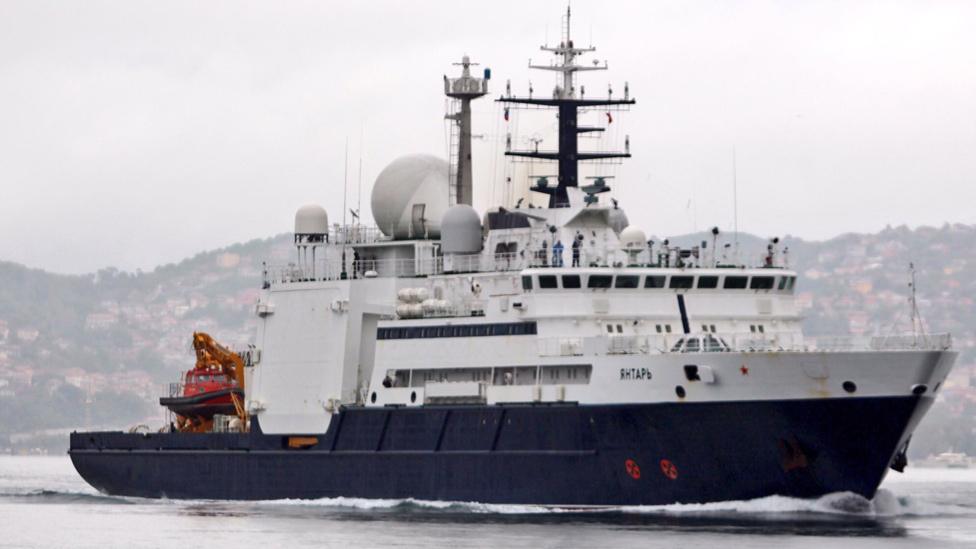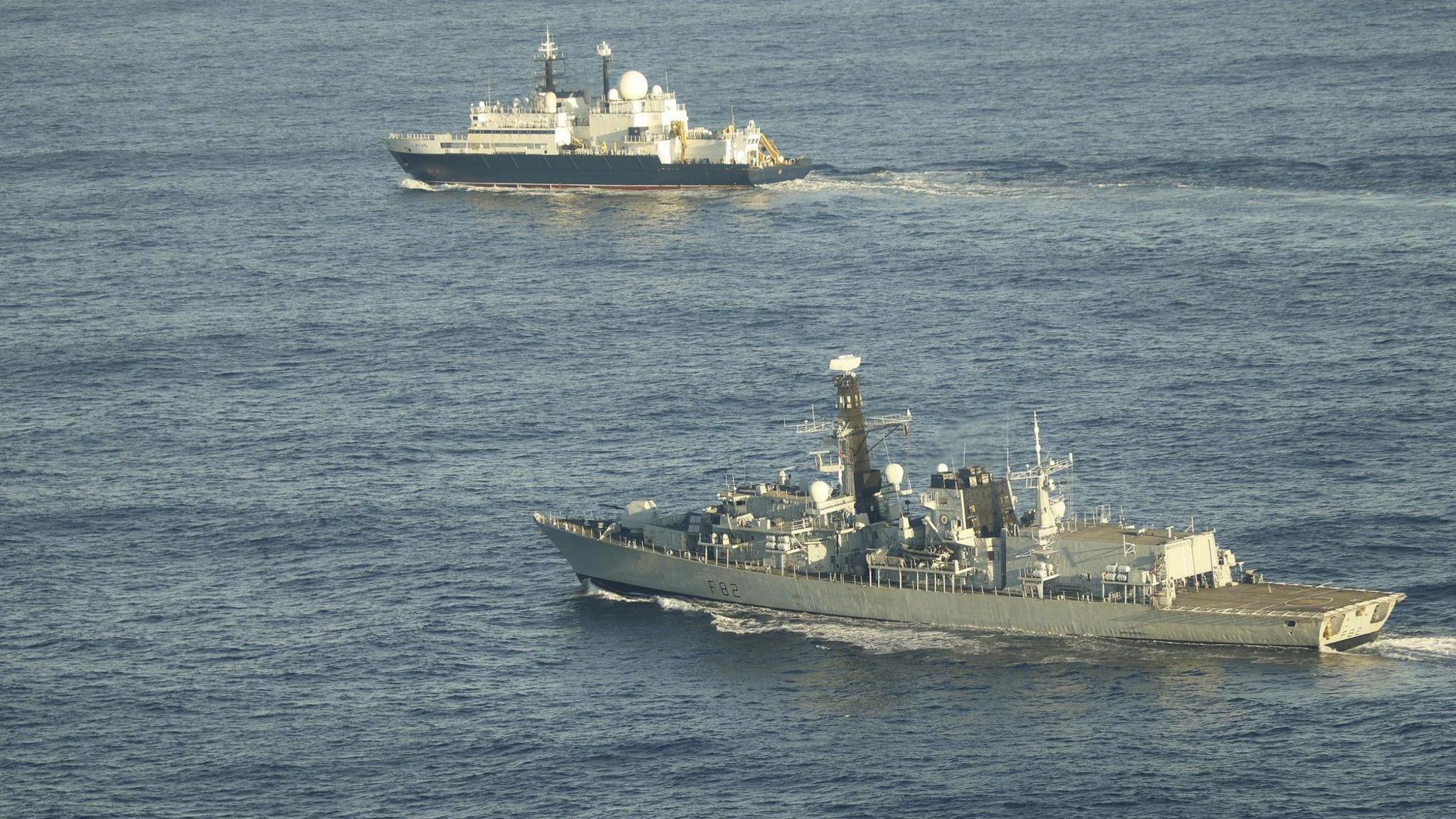How serious is the Russian spy ship move?

The Ministry of Defence released new photos on Wednesday of the Royal Navy tracking the Yantar
- Published
To Russia, the Yantar is a oceanic research vessel - to others, including the UK, it's a spy ship, and a worry for Britain's defence chiefs.
The vessel has long been suspected of secretly mapping out Britain's undersea cables, where more than 90% of our data, including billions of dollars of financial transactions, are transferred.
But now, a new escalation, with revelations the Yantar's sailors targeted Royal Air Force pilots in patrol planes with lasers.
Shining lasers into a pilot's eyes is provocative, and to use the Defence Secretary John Healey's words, "deeply dangerous". It's illegal in the UK and can lead to a prison sentence.
Healey's direct message to Russia and its leader Vladimir Putin was stark: "We see you. We know what you're doing. And if the Yantar travels south this week, we are ready."
By that, he is implying should the Yantar cross inside Britain's 12-mile maritime boundary there would be a military response.
This isn't the first time the Yantar has popped up near Britain's shores - at the start of the year a Royal Navy submarine made the highly unusual move to surface right in front of the ship as a sort of deterrent measure.
The concern is that this is part of an ongoing operation by the Kremlin to locate and map all the vital undersea cables and pipelines that connect the UK to the rest of the world.
It is also part of a wider pattern of Russian activity, as it tests Nato's reactions, resolve and defences. We've seen similar moves with the recent drone incursions across Europe, and Russian warplanes flying into Nato airspace.
When three Russian fighter jets entered Estonian skies without permission in September, Italy, Finland and Sweden scrambled jets under Nato's mission to bolster its eastern flank.
This is all interesting intel for Russia.
Russian spy ship pointed lasers at RAF pilots tracking it, says UK
- Published4 hours ago
As an island nation, Britain is heavily reliant on its network of undersea cables that carry data. There are also vital oil and gas pipelines connecting Britain to North Sea neighbours such as Norway.
These cables and pipes are largely undefended and apparently of great interest to Russia's research vessels.
Nato has identified deep-sea cables as part of the world's critical infrastructure. But they are also strategic pressure points, it says, warning that adversaries could exploit them through sabotage or hybrid warfare, threatening both civilian and military communications.
Retired Royal Navy Commander Tom Sharpe made clear what the spy ship could be doing: "The most obvious one is they sit above our cables and our critical undersea infrastructure and they nose around in the cables that transfer up to $7tn worth of financial transactions every day between us and America alone".

Putin gave little away while he visited an AI conference in Moscow on Wednesday
The Yantar may be described by Moscow as a research vessel, but it is part of Russia's secretive Main Directorate for Deep Sea Research, or GUGI, which reports directly to the defence ministry.
And while the ship bristles with hi-tech communications equipment, it's what we can't see that is of most concern.
It can operate remotely-piloted miniature submarines that can dive down to sea beds many thousands of metres below the surface. These are capable of mapping the locations of cables, cutting them or planting sabotage devices that could, potentially, be activated in a time of war.
The Royal Navy is experimenting with various means of combating the threat, such as a new vessel called Proteus, but critics fear much of the damage to Britain's coastal security may already have been done.
Any foreign vessel operating in British waters must comply with UK national laws and international maritime conventions.
The cornerstone of these complex rules is the UN Convention on the Law of The Sea (UNCLOS). This allows foreign ships to navigate through coastal waters provided that their passage is "innocent" - meaning it doesn't threaten the peace or security of a coastal nation like Britain.
President Putin was at an AI conference in Moscow on Wednesday, and gave no immediate reaction on the situation unfolding north of Scotland.
Russia's Embassy in London says it's not undermining UK security and it has condemned UK Defence Secretary Healey's statement as provocative.
But all this is happening while war rages in Ukraine, a conflict Putin blames on the West and which seemingly he has no intention of stopping soon.
Additional reporting by Tiffany Wertheimer and Stuart Hughes
- Published4 hours ago

- Published3 January 2018

- Published23 January
